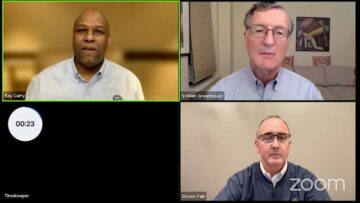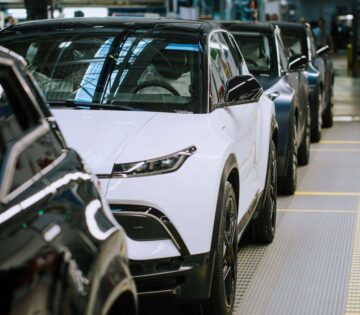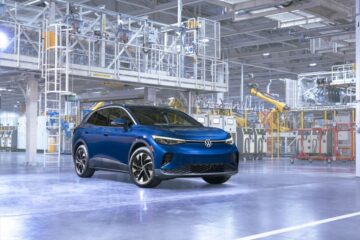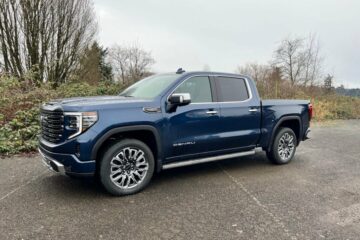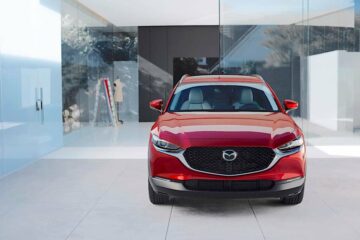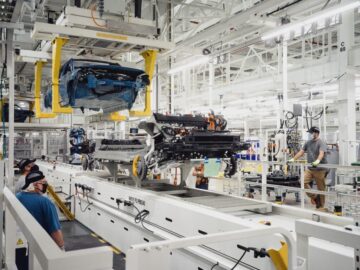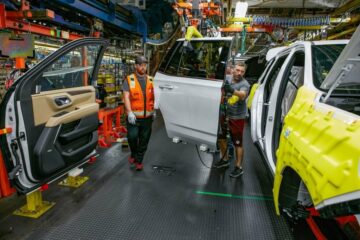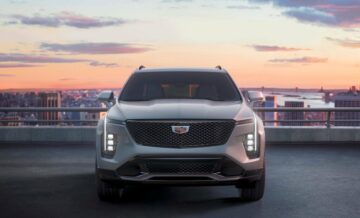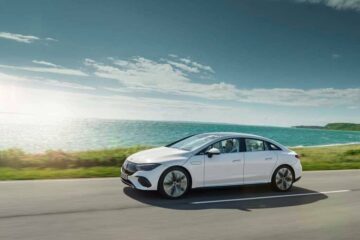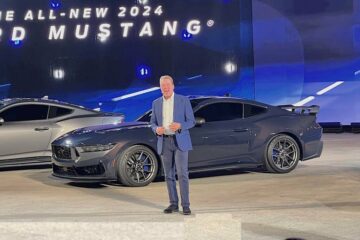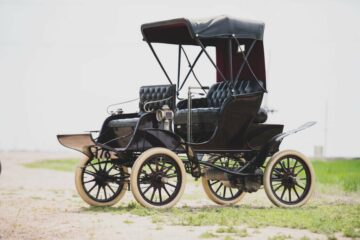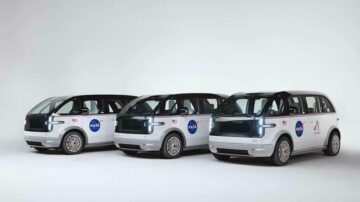Ford Motor Co. has put production of its F-150 Lightning on hold for at least another week, a representative said, putting the blame on a battery problem that caused one of the newly built pickups to catch fire.
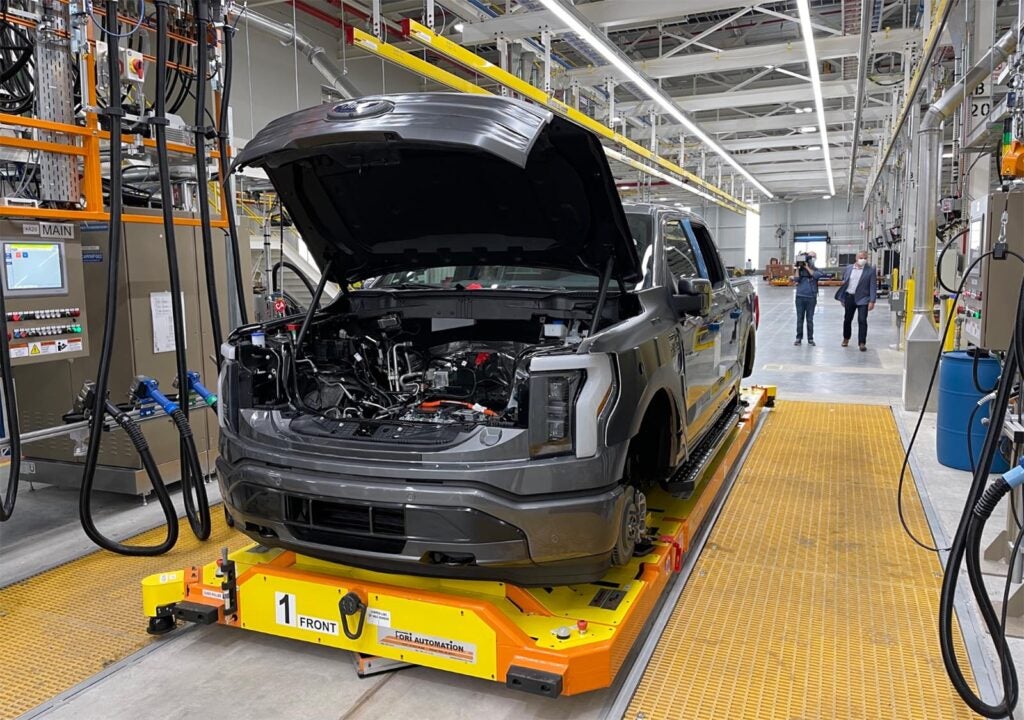
The move is expected to further exacerbate the shortage of Lightnings for which Ford claimed to have about 200,000 advance orders when it shut down its advance reservation process last year. The bigger concern is the potential hit the incident could cause to the popular truck’s reputation.
“By the end of next week, we expect to conclude our investigation and apply what we learn to the truck’s battery production process; this could take a few weeks,” Ford said in statement emailed to TheDetroitBureau.com. “We will continue holding already-produced vehicles while we work through engineering and process updates.”
But spokesperson Emma Bergg said there is no “stop-sale,” and dealers will continue to be able to sell and distribute trucks they’ve already received. There had been no indication of battery problems until the recent fire occurred.
Fire and Lightning
It took place Feb. 4 during a pre-delivery inspection near the Rouge Electric Vehicle Center in Dearborn, Michigan where the Lightning is assembled. A single vehicle’s battery pack caught fire, the blaze subsequently spreading to a second vehicle.
Ford has isolated the cause of the problem, but Bergg would not disclose what was learned. The automaker intends to be sure the issue can be resolved before it resumes production. At the earliest, production might resume by Feb. 24, but it could take “weeks” longer, she explained, to ensure the issue won’t repeat.
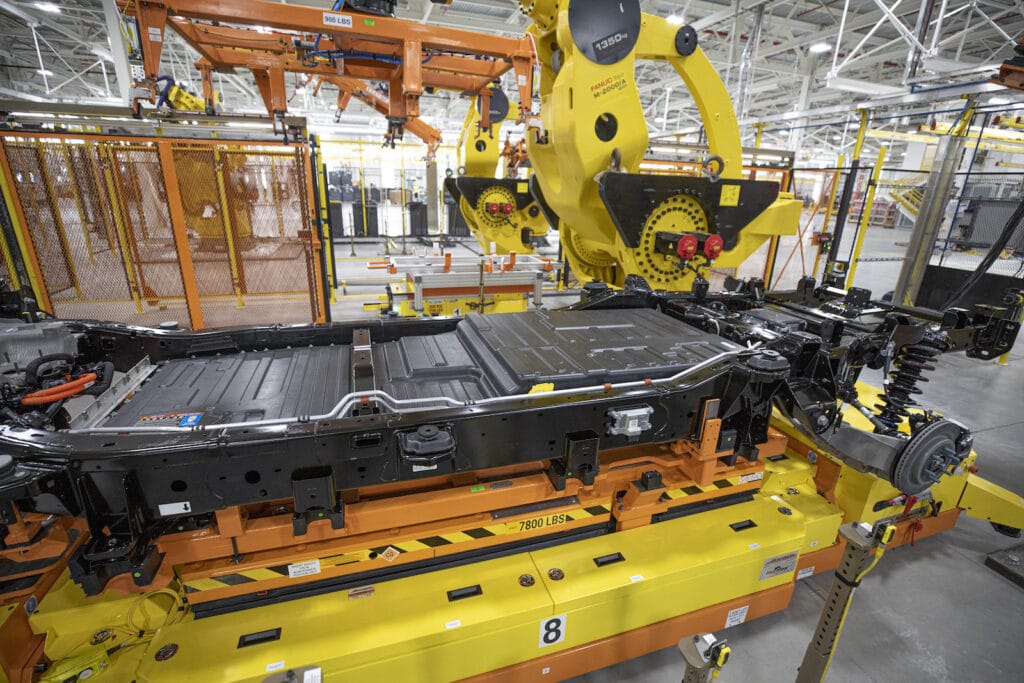
Even if the shutdown is brief it will cause headaches for Ford considering the lengthy backlog of orders for the Lightning. Late last year, electric vehicle program chief Darren Palmer said he expected it will take until at least early 2024 to meet initial orders, never mind servicing new customers.
Disrupting growth plans
Along with the automaker’s first long-range EV, the Mustang Mach-E, Lightning has helped Ford grow to become the second-largest seller of battery-electric vehicles in the U.S., delivering more than 66,000 last year. The automaker expects to boost its run rate to 600,000 EVs annually by the end of 2023 and 2 million by 2026.
To get there it is plans to boost production capacity at the Rouge factory from an initial 25,000 to 150,000 by late this year.
Word of the production halt became public just hours after Ford Chairman Bill Ford and CEO Jim Farley hosted a media event to announce plans to build a $3.5 billion battery plant in Marshall, Michigan.
Potential problems

Currently, all Ford battery-electric vehicles use a long-range battery technology known as NCM, short for its key ingredients: nickel, cobalt and manganese. That chemistry has been linked to problems, including fires, involving a number of automakers.
General Motors halted production of its Chevrolet Bolt EV for months while it resolved its own battery fire issue. Hyundai Motor Group ordered an expansive recall of its own EVs due to reports of fires.
An alternative battery
The new Ford battery plant will use an alternative and less expensive battery chemistry, LFP, short for lithium, iron and phosphate. It delivers slightly lower range but is also considered less prone to catching fire.
Ford plans to begin using the new chemistry for base versions of its Mustang Mach-E starting later this year. It will then follow up with short-range versions of the Lightning.
Initially, LFP cells will be imported from China. Production will shift to the Marshall plant by 2026, CEO Farley said Monday.
- SEO Powered Content & PR Distribution. Get Amplified Today.
- Platoblockchain. Web3 Metaverse Intelligence. Knowledge Amplified. Access Here.
- Source: https://www.thedetroitbureau.com/2023/02/battery-fire-blamed-for-ford-f-150-lightning-production-halt/
- $3
- 000
- 2023
- 2024
- a
- Able
- About
- advance
- After
- ahead
- All
- already
- alternative
- and
- Announce
- annual
- Annually
- Another
- Apply
- assembled
- automakers
- base
- battery
- battery production
- become
- before
- bigger
- Bill
- Billion
- Bolt
- boost
- build
- built
- Capacity
- Catch
- caught
- Cause
- caused
- Cells
- Center
- ceo
- certain
- chairman
- chemistry
- Chevrolet
- chevrolet bolt
- chief
- China
- claimed
- COM
- Concern
- conclude
- considered
- considering
- continue
- could
- Customers
- Darren
- delivering
- delivers
- Disclose
- distribute
- down
- during
- Early
- Electric
- electric vehicle
- Engineering
- ensure
- EV
- Event
- expansive
- expect
- expected
- expecting
- expects
- expensive
- explained
- factory
- few
- Fire
- fires
- First
- follow
- Ford
- from
- further
- get
- Group
- Grow
- Growth
- headaches
- helped
- Hit
- hold
- holding
- hosted
- HOURS
- HTTPS
- Hyundai
- in
- incident
- Including
- indication
- initial
- intends
- investigates
- investigation
- isolated
- issue
- IT
- Jim
- Key
- known
- Last
- Last Year
- Late
- LEARN
- learned
- lightning
- linked
- lithium
- longer
- make
- max-width
- Media
- Meet
- Michigan
- might
- million
- mind
- Monday
- months
- more
- Motor
- Motors
- move
- Near
- New
- next
- next week
- Nickel
- number
- occurred
- officials
- ONE
- orders
- own
- Pack
- Place
- plans
- plato
- Plato Data Intelligence
- PlatoData
- Popular
- potential
- Problem
- problems
- process
- Production
- Program
- public
- Pushing
- put
- Putting
- range
- Rate
- received
- recent
- repeat
- Reports
- representative
- reputation
- reservation
- resolved
- resume
- Run
- Said
- Second
- second-largest
- sell
- shift
- Short
- shortage
- Shut down
- shutdown
- single
- spokesperson
- Spreading
- Starting
- Statement
- Subsequently
- Take
- Technology
- The
- this year
- thought
- Through
- to
- Trucks
- u.s.
- Updates
- use
- vehicle
- Vehicles
- week
- Weeks
- What
- which
- while
- will
- Work
- would
- year
- zephyrnet

